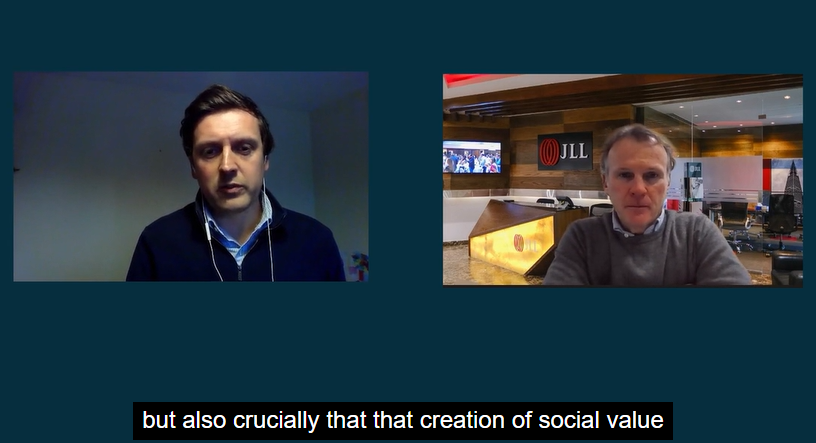In our latest Impact Chat, Social Invest Director Luke Cross speaks to Simon Hodson, Head of Sustainability, Residential & Living, JLL. Simon engages in a wide-ranging discussion drawing on more than 25 years’ experience in the housing industry. Below are some key talking points from the webinar:
Housing delivery has been lacklustre
The conversation began with a look back over Simon’s time working in housing, including what he believes has worked and what hasn’t. Simon explains the housing sector faces persistent challenges such as affordability and the planning system, that have impeded progress over the last 30 years, indicating a need for substantial changes in approaches.
“We haven’t come very far in because of a range of issues…we are now entering a new 30-year period where we will see profound change,” he predicts.
Housing needs to reflect reality of modern life
Simon noted the changing demand for different types of housing over the years. He recalls how a few years ago many were advocating for family housing but that nowadays there is a greater level of demand from professional couples, and there aren’t necessarily the right types of housing available. Similarly, he highlights the fact that the UK has an ageing population with demand for later living on the rise.
He says: “I think it needs to be better understood what the housing need is, as opposed to retrofitting what the housing model of the past has been.”
The importance of public consultation
Part of the solution to providing the housing country needs, Simon says, is more time and energy being put into public consultation.
He gives examples of successful examples of public consultation and how this has built trust among residents.
“I think in terms of some of the things that we might do different or better in future, I put a lot of weight on public consultation and spending a little bit more time really getting to the crux of our what we really need as opposed to what we want,” he says.
The role of private finance
The conversation also covers how we can fund the new homes that the country needs. Simon notes that housing faces a long-term, structural challenge and this requires funding that reflects this. In particular, he highlights the potential benefit of patient capital from the private sector.
“I think that we need to find that institutional capital to sit alongside the local authorities and some credible, competent delivery partners,” he says.
This is the motivation behind some work Simon has been doing with the Mayor of London and New London Architecture which will look at innovative models to fund housebuilding in the capital.
Housing’s impact on wider society
Simon identifies a trend in recent years of investors and other stakeholders seeking to measure the impact of their investments after just a few years. He argues that real impact takes time and therefore needs to be measured over a longer period of time. He adds: “There’s lots of research on how getting people into better quality homes reduces the crime rate, reduces the burden on our healthcare system and therefore with more people in a stable life, the chance of them being able to enter the employment market and there is a social benefit of that and an economic benefit.”


